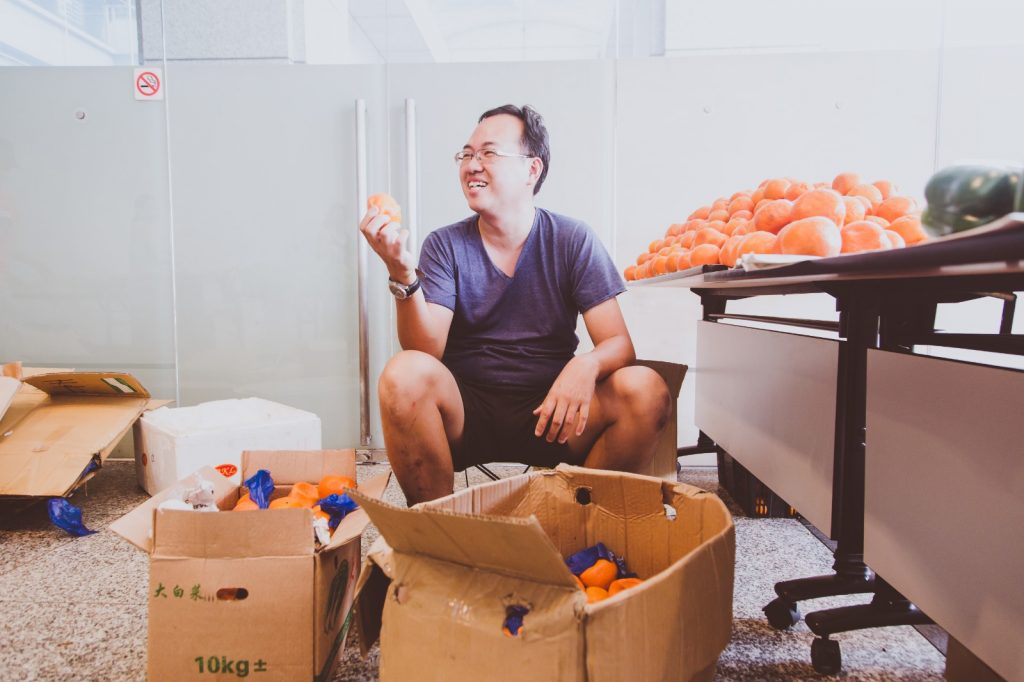Having been featured in the likes of The Straits Times, AsiaOne and Nas Daily, Daniel Tay is no stranger to the spotlight. Most Singaporeans know him as the face of Freeganism, an unconventional lifestyle that champions sustainable living. More recently, he’s also known as the man who managed to retire in expensive Singapore at 40 years old.
“A lot of people would say, if you can retire so early, it must mean you’re very rich. But the truth is that I spend very little – that’s my secret,” said Mr Tay.
Now 42 years old, the co-founder of SG Food Rescue said he followed Freeganism strictly for two years before his retirement. As far as possible, he collects and reuses things that people no longer want – even if they’re already in trash bins.

But he did spend some money. In 2017, his food expenses added up to just $8 – less than the price of a BigMac Extra Value Meal. In 2018, his expenses dropped further to $5.50.
When asked how much he spent in 2020, he quips: “I stopped keeping track already because I truly don’t spend much on food.”
Even Covid-19 didn’t change his lifestyle.
“[Other Freegans and I] were all very hesitant to go dumpster-diving because we didn’t know before whether we could get the disease from rummaging through someone else’s trash,” Mr Tay says.
But they continued with it when they realised that the habits they already had prior to Covid-19, such as sanitising their hands, should protect them from the infection to some extent.
Mr Tay adds: “The pandemic has actually made it easier to collect food [because] there are more businesses that understand that people are going through a difficult time. So, they’re more willing to give away their unsellable goods instead of throwing them away.”
Photo Credit: Daniel Tay
When Mr Tay first started dumpster-diving, he was still worried that passers-by would think of him as “homeless, jobless, down in a slump or having some sort of mental illness”.
But he soon realised: “These stereotypes were my own. What other people think of me might actually be completely different.”
After overcoming his self-doubts, he found that it’s actually not too difficult to remain a freegan while maintaining an active social life.
He cites an example. “If [my friends] want to go out, I’ll prepare some food from home, and we’ll have a picnic outside.”
“I find that they like this experience because it’s something different, and because we can avoid the noisy restaurants [and] cafés, we end up having better quality conversations,” explains Mr Tay.
Perhaps the most beneficial part of this arrangement is that both he and his friends don’t have to spend a single cent.
| |
Photos Credit: Daniel Tay
But if they must meet at a food outlet, he will bring his own food. If the eatery doesn’t allow outside food, he’ll just drink water. What matters is he can still catch up with friends.
Those around him are supportive of his way of life. “They see the benefits of it, they experience the benefits of it themselves, so they’re very supportive.”
“When I started Freeganism, I didn’t really have many friends. But now I do – most of the friends I have were made through this lifestyle.”
He’s even inspired some of his long-time friends to adopt some aspects of Freeganism, such as being open to receiving and reusing hand-me-downs.
Mr Tay has also been contributing to a Freegan blog and actively sharing his experiences on social media. He was a TEDx speaker at Singapore Polytechnic in 2018.
“Being in a more affluent society and consumerism’s influence have made us forget values like frugality, so I feel like I’m doing my part when I’m helping [to] shed light on the lifestyle.”
Edited by: Anmi Chou Shigeta
Proofread by: Winny Wint Htae
